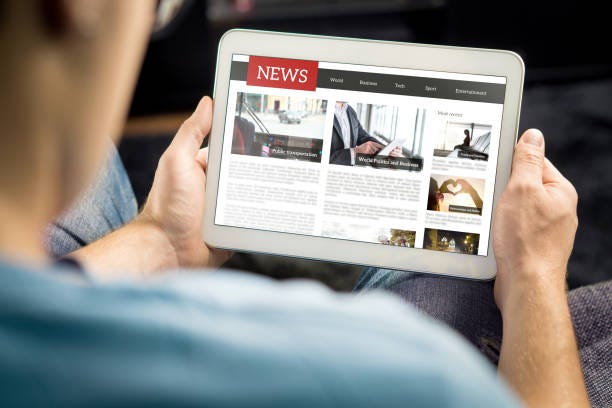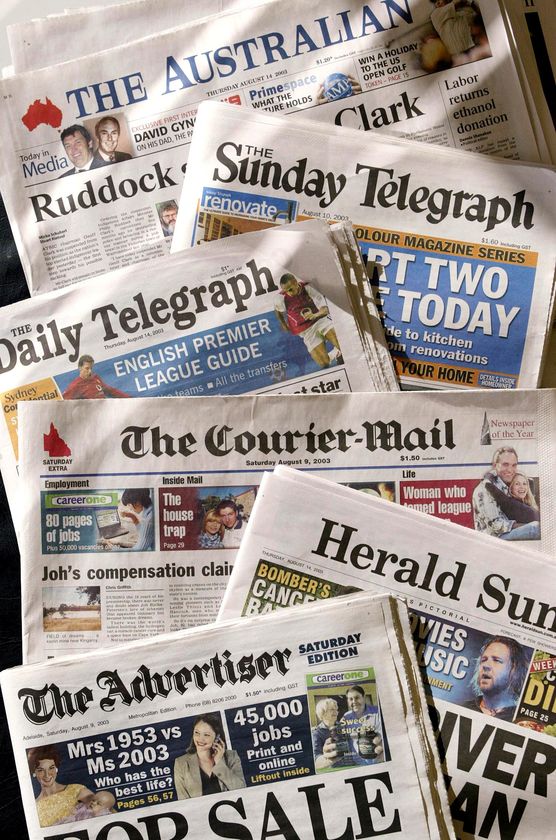The Buzz on Online News
The Buzz on Online News
Blog Article
Getting The Online News To Work
Table of ContentsThe 5-Second Trick For Online News5 Simple Techniques For Online NewsGetting My Online News To WorkOnline News Things To Know Before You Get ThisHow Online News can Save You Time, Stress, and Money.
Figures for the percentage of individuals paying for online information were within the margin of mistake for both studies. Let's very first take into consideration people who have accessibility to information that you would normally have to spend for. It makes good sense to start right here since some individuals have actually access to paywalled news through cost-free trials, by means of their job, and more.There are different types of gain access to, but the three most common are subscriptions to on the internet information from a solitary brand name, registrations to a print/digital package from a single brand, and a subscription to several brands aggregated in one location. Of these, digital-only memberships to a solitary brand name are one of the most typical kind of accessibility in all 3 nations.
Paid information collectors are reasonably preferred in the United States, mostly many thanks to Apple Information+, yet presently these are much much less typical than memberships to single news brands. As we saw in the Executive Summary, individuals mainly have accessibility to among a tiny team of noticeable brand names. In the United States, over half of these people have access to either the New York City Times or the Washington Blog post, and in the UK, it's The Times or the Telegraph.
Online News for Beginners
However, the majority of this team have accessibility since they are spending for memberships with their very own money 75% in Norway and the UK, and 84% in the US. For under-45s the figure is reduced. But amongst those 45 and over, the large bulk of those who have access are paying with their own cash.
In the United States and specifically Norway, lots of publishers have presented paywalls, which suggests more people will certainly be asked to pay possibly heightening a feeling of scarcity and developing a sensation that news can be worth paying for. In the UK, by contrast, just a relatively handful of publications try to charge for news.
In this respect it interests compare the different factors subscribers offer in the USA and United Kingdom for spending for online information. Overall, one of the most vital aspect is the distinctiveness and top quality of the web content. In both countries, customers believe they are getting much better info than from complimentary resources.

Some Ideas on Online News You Should Know
These extra aspects seem to be especially useful for retention as they build routine and are less replicable somewhere else. For Norwegians too the distinctiveness of web content prevailed in addition to convenience and ease of usage. 'Aftenposten is a significant paper with great quality', said one participant, yet it was striking that 'sustaining excellent journalism' is much less of a motivation (21%) possibly because traditional media outlets are viewed as much less polarised in Norway.
Furthermore, around half of those who presently have open door state that they might begin paying if their cost-free gain access to runs out. This is encouraging, and perhaps more encouraging still is that these numbers indicate retention prices that are similar to those for memberships to video and audio streaming services like Netflix and Spotify.
It can additionally be viewed as a beneficial pointer that individuals do not necessarily subscribe forever, and flaunts concerning the variety of 'new subscribers' might not be telling the entire story (Online News). There's significant 'spin' around, as many individuals end their free trials prior to they have to pay, or just cancel their memberships to invest their money on various other points
Female, 37, Norway It cost means too much and I can obtain round the paywall. Male, 36, US Too costly, really felt there was nothing I couldn't obtain completely free on Apple Information. Female, 19, UK In the UK, the variety of individuals that used to have actually access to paid news (10%) is close to the variety of people that presently have access (9%) with the comparable numbers from the US and Norway greater still (albeit lower than the variety of individuals with access).
Getting The Online News To Work
As we've currently seen, existing clients are reasonably happy, but with income from digital advertising and marketing unclear many publishers will be wanting to enhance the number of new customers. In contrasting our three countries we see some this content fascinating distinctions that might notify author methods. We observe a really high percentage (40% in the United States and 50% in the UK) who state that nothing could persuade them to pay.
But in Norway, where interest in news tends to be greater and where cost-free information is much more limited just 19% claim they couldn't be convinced. Price and convenience are some of the vital aspects that could make a difference. In Norway, a 3rd (30%) state they might subscribe if it was cheaper and 17% if they can pay to gain access to multiple websites from a solitary repayment.
Publishers have actually progressively been supplying differential rates to get organization from those unlikely to pay full price (e.g. overseas customers and students). Paying to prevent invasive advertisements is another potential course for publishers, with around one in seven respondents in all three countries claiming this this could attract them to subscribe.

A Biased View of Online News
The fear of losing out can be an effective barrier. Some outlets now ask visitors to sign up with them in order to have the ability to access a handful of write-ups free of charge. Lots of journalists would see this as a reasonable trade-off, however the public are extra cautious. In all three countries fewer than half believe signing up is a reasonable profession, however it's likewise clear that individuals are not strongly opposed either.
In between 13% and 22% in our 3 countries say they signed up to gain access to information web content in the in 2015. Some are additionally making use of various other techniques to navigate paywalls such as resetting cookies, transforming their web browser settings, or perhaps look these up downloading and install committed software. Just a third say they have ever attempted to do something similar to this, next as it requires a specific degree of digital proficiency, and several are possibly unaware that is a possibility.
Individuals have various views about the rights and wrongs of attempting to avoid paywalls. Couple of would certainly suggest that this is constantly sensible, however some people do have reservations around vital public-interest journalism just being offered to those prepared and able to pay for it. A paywalled expositions of the UK federal government's handling of the coronavirus break out by the Sunday Times resulted in a warmed argument regarding the concern on Twitter, with some trying to openly share the complete post.
Report this page